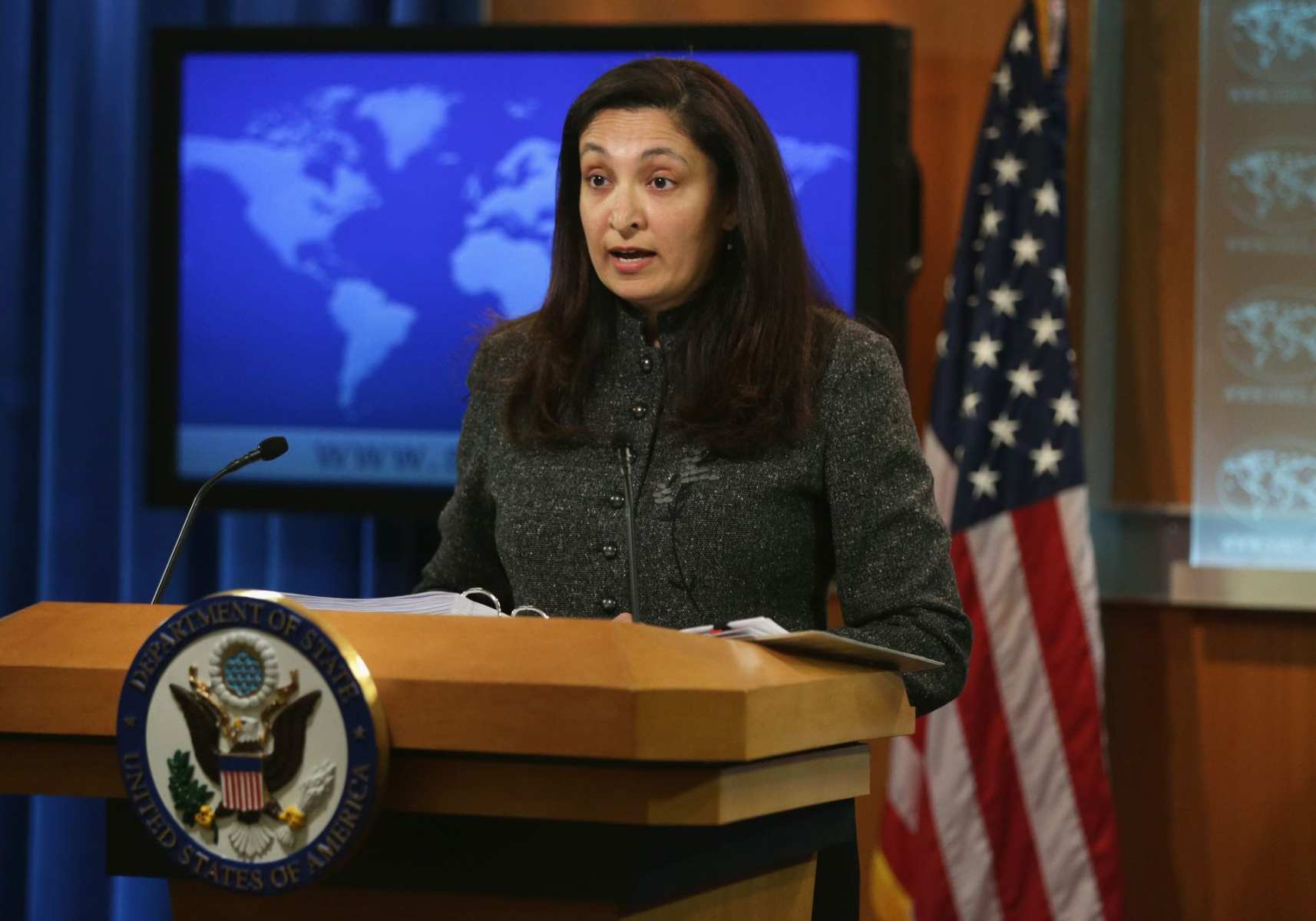For the latest news on the historic presidential inauguration and impacts of the new administration, subscribe to The 19th’s daily newsletter.
President Joe Biden will likely have a record number of Indian Americans in his administration. As of Friday, Biden had named or nominated at least 20 Indian Americans to his administration, including 13 women — further propelling the historic vice presidency of Kamala Harris, the first South Asian and Black woman to hold the office.
“It’s an extraordinary thing, in that we are finally able to see members of our community at the highest levels of government … even at the staff level, there’s much better representation than there has been at any other time in the past,” said Neil Makhija, executive director of IMPACT, an Indian American advocacy group and PAC working to establish a network of Indian American leaders.
Neera Tanden was nominated for director of the Office of Management and Budget in November. If confirmed by the Senate, she will make history as the first woman of color to hold the position.
Sabrina Singh was named as the White House deputy press secretary earlier this month. She posted to Twitter, “I’m so grateful and incredibly humbled to join this team. It’s been an honor to work for @KamalaHarris and I’m excited to continue the work and deliver results for the American people.” Singh previously worked as press secretary for the Biden-Harris campaign.
Biden also named Sonia Aggarwal as the senior adviser for Climate Policy and Innovation last week. Biden also nominated former civil rights attorney Vanita Gupta, who will serve as his associate attorney general if confirmed by the Senate. “By virtue of that name, that value of justice, we know the department carries a unique charge and North Star,” Gupta said at a press conference earlier this month. “It is the keeper of a sacred promise. It’s the promise of equal justice for all. That no one is above the law. And when this promise is pursued with vigor, it brings light to our nation and serves as a beacon to the world. But when abandoned, we degrade our democracy, and sew the division that we’ve come to know all too well.” If confirmed, Gupta says she will work tirelessly to uphold justice, accountability and equality.
Biden most recently nominated Uzra Zeya for under secretary for Civilian Security, Democracy, and Human Rights. A January 16 press release highlighted her diplomatic experience in Middle Eastern, South Asian, European, human rights and multilateral affairs. She tweeted Saturday, “In my 25+years as a diplomat, I learned that America’s greatest strength is the power of our example, diversity & democratic ideals. I will uphold & defend these values, if confirmed, as Under Secretary for Civilian Security, Democracy, and Human Rights.”
In Biden’s agenda for the Indian American community, he highlights the importance of representation in his own administration. “Biden will ensure that South Asian Americans are represented in his administration, starting with his Vice Presidential nominee, Senator Kamala Harris, whose mother emigrated from India to study and build a life in the United States. Our government will reflect the diversity of the United States, and Indian American voices will be included in shaping the policies that impact their communities.”
For the first time in history, two Indian American women represent Kashmir, the northern-most region of India, according to Business Standard. Aisha Shah, who has been named as partnership manager at the White House Office of Digital Strategy, and Sameera Fazili, who is nominated to be the deputy director at the U.S. National Economic Council.
First Lady Dr. Jill Biden also added two key members of her team: Mala Adiga, appointed as the first lady’s policy director; and Garima Verma who was chosen as the digital director of the Office of the First Lady.
These named and nominated women send a message about the commitment from the Biden-Harris administration to include and highlight the talents and experiences of women and Indian American individuals across top positions, said Makhija.
“Our family came to the United States to give their children, their sons and their daughters, the opportunity to live out their dreams. And I think this is certainly an example of that on a personal level,” said Makhija.





